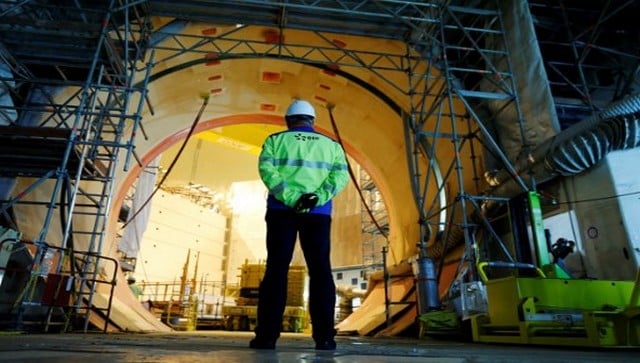[ad_1]

(FILES) In this file photograph taken on November 16, 2016, a employee stands in the development web site of the third-generation European Pressurised Water nuclear reactor (EPR) in Flamanville, northwestern France on November 16, 2016. AFP
Geneva: The World Health Organisation has up to date the list of emergency medicines that governments ought to have prepared in case a radiological or nuclear emergency is triggered.
The report focuses primarily on pharmaceutical provides wanted to deal with radiation exposures. Iodide tablets, antiemetics, anti-diarrhoeal brokers, decorporating brokers, alkylating brokers, and different medicines have been included in the up to date list of pharmaceutical provides.
Dr Mike Ryan, Executive Director of WHO’s Health Emergencies Programme mentioned, “This updated critical medicines list will be a vital preparedness and readiness tool for our partners to identify, procure, stockpile and deliver effective countermeasures in a timely fashion to those at risk or exposed in these events.”
The report hasn’t been modified since 2007. According to Fox News, though no particular motive has been cited for the change, the growing menace of a radiological catastrophe owing to the Russia-Ukraine warfare may need prompted WHO to replace it.
Dr Maria Neira, the Acting Assistant Director-General at WHO mentioned, “It is essential that governments are prepared to protect the health of populations and respond immediately to emergencies.”
“This includes having ready supplies of lifesaving medicines that will reduce risks and treat injuries from radiation,” she added.
The up to date report specifies the roles of nationwide well being authorities and WHO in stockpile growth.
“As the leading international organization in public health with both the authority and responsibility to assist in health emergencies, WHO provides advice and guidance to countries on public health preparedness and response to radiation emergencies, including stockpile development,” the report says.
It additionally cites examples of practices set by chosen international locations in establishing and managing a nationwide stockpile. These international locations are Argentina, Brazil, France, Germany, Japan, the Republic of Korea, the Russian Federation and USA.
Radiological disasters can happen following an accident at a nuclear energy or may be triggered by an intentional detonation of a nuclear bomb in an armed battle.
Read all of the Latest News, Trending News, Cricket News, Bollywood News,
India News and Entertainment News right here. Follow us on Facebook, Twitter and Instagram.
[ad_2]
Source hyperlink




